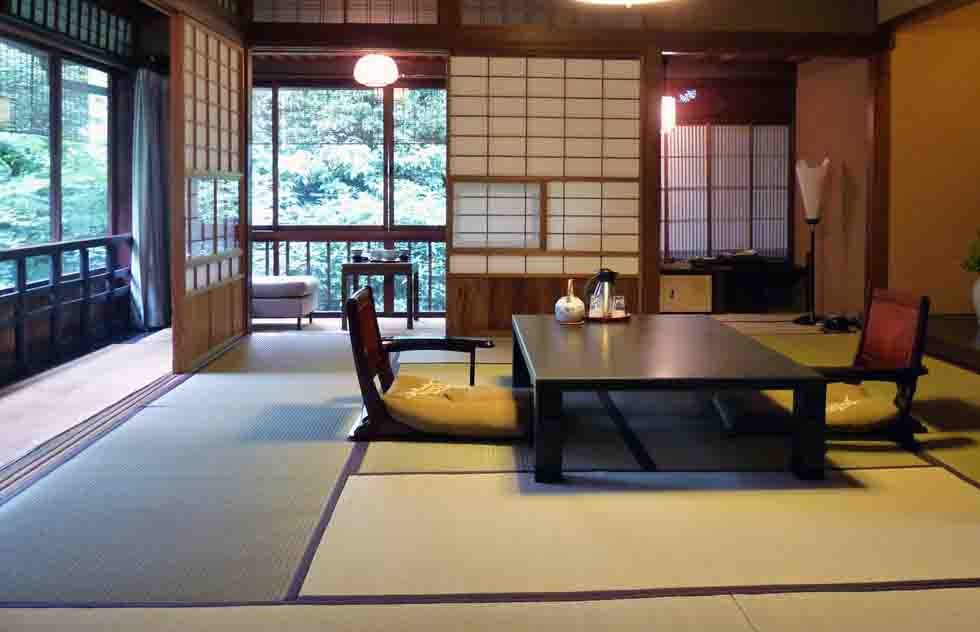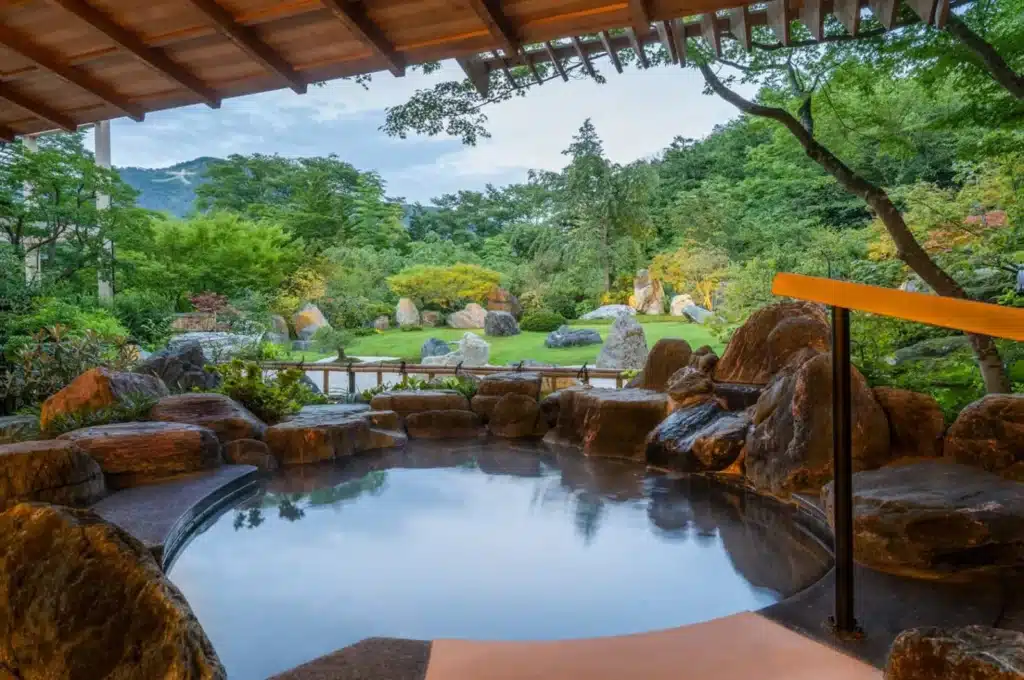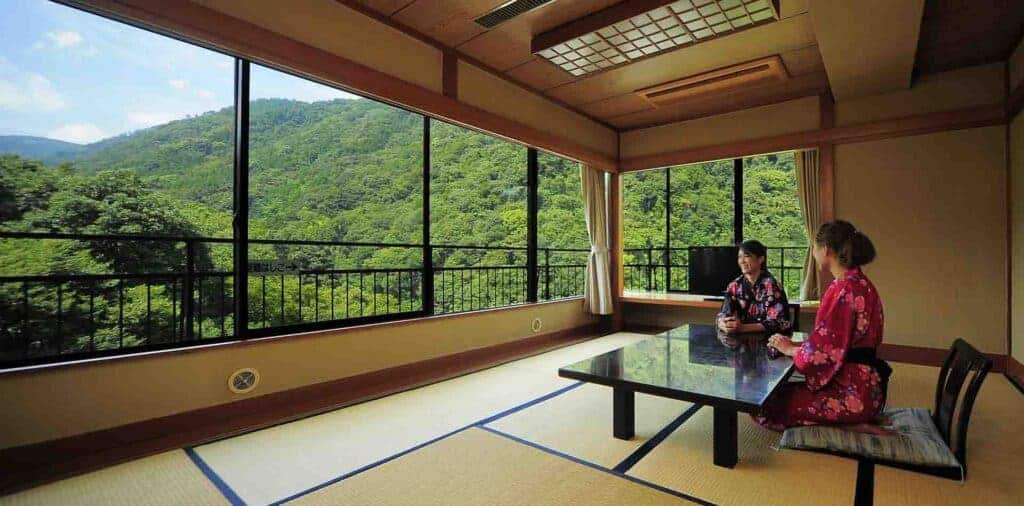
Introduction
Nara, a city in Japan known for its rich cultural heritage and landscapes, offers visitors a unique opportunity to experience authentic Japanese hospitality at traditional inns called ryokan. These inns not only provide comfortable accommodations but also immerse guests in the traditional Japanese way of life. In this article, we will explore three ryokan in Nara that offer a perfect blend of warm hospitality, tranquil surroundings, and a glimpse into Japan’s ancient traditions.
Unforgettable Stays: Discover the Charm of Nara’s Ryokan
Nestled in the heart of Japan, Nara is a city that exudes history and tradition. Known for its ancient temples and friendly deer that roam freely, Nara offers visitors a unique glimpse into the country’s rich cultural heritage. And what better way to experience the true essence of Nara than by staying at a traditional ryokan?
Ryokan, which translates to “inn” in English, are traditional Japanese guesthouses that have been around for centuries. These establishments are known for their warm hospitality, serene landscapes, and authentic Japanese experiences. In Nara, there are several inns that offer all these and more.
One such traditional ryokan is the Yoshino Cedar House. Located in the picturesque Yoshino region, this inn is surrounded by lush cedar forests and offers breathtaking views of the surrounding mountains. The Yoshino Cedar House is known for its impeccable service and attention to detail. From the moment you step foot inside, you will be greeted with a warm smile and a cup of traditional Japanese tea.
The rooms are spacious and elegantly decorated, with tatami mats and sliding doors that open to a private garden. In the evening, guests can indulge in a traditional kaiseki dinner, which consists of multiple courses of exquisitely prepared seasonal dishes. After dinner, you can relax in the traditional ryokan’s outdoor hot spring bath, known as an onsen, and soak in the tranquil atmosphere.

Another ryokan that should not be missed is the Nara Hotel. Established in 1909, this historic inn has welcomed countless guests over the years, including royalty and celebrities. The Nara Hotel is located in the heart of Nara Park, making it the perfect base for exploring the city’s famous landmarks, such as Todaiji Temple and Kasuga Shrine.
The inn itself is a masterpiece of architecture, with its grand entrance and elegant interiors. The rooms are spacious and tastefully decorated, with traditional Japanese furnishings and modern amenities. Guests can enjoy a traditional Japanese breakfast in the ryokan’s dining room, which overlooks a beautiful garden. In the evening, you can unwind in the ryokan’s lounge, sipping on a glass of sake and enjoying the peaceful ambiance.

Situated in the tranquil Kasugayama Primeval Forest, Kasuga Hotel offers a truly immersive experience in nature. The Kasuga Hotel is known for its beautiful gardens, which are meticulously maintained and feature a variety of seasonal flowers and plants.
The rooms are spacious and comfortable, with traditional Japanese decor and modern amenities. Guests can enjoy a traditional Japanese dinner in the ryokan’s dining room, which overlooks a serene pond. After dinner, you can take a leisurely stroll through the forest, or relax in the ryokan’s outdoor hot spring bath, surrounded by the sounds of nature.
In conclusion, if you are looking for an unforgettable stay in Nara, look no further than these three inns. With their warm hospitality, serene landscapes, and authentic Japanese experiences, they offer a truly unique glimpse into the rich cultural heritage of Japan.
Whether you choose to stay in the Yoshino Cedar House, the Nara Hotel, or the Kasuga Hotel, you are guaranteed to have a memorable and enchanting experience. Book your stay at one of these ryokan and immerse yourself in the charm of Nara’s traditional hospitality.
Conclusion for Ryokan in Nara
In conclusion, Nara offers a unique opportunity to experience authentic Japanese hospitality and serene landscapes at three ryokan establishments. These ryokan provide traditional accommodations, warm hospitality, and a chance to immerse oneself in the rich cultural heritage of Japan. With their tranquil surroundings and close to Nara’s famous landmarks, these ryokan offer a truly unforgettable experience for travelers seeking a peaceful retreat in Japan.
What is a ryokan?
A ryokan is a traditional Japanese inn that offers a unique cultural experience, including tatami-matted rooms, futon bedding, communal baths, and kaiseki (multi-course) dining.
Why should I choose a ryokan in Nara for my stay?
Nara offers a rich historical and cultural backdrop with serene landscapes, making it an ideal location for experiencing authentic Japanese hospitality at a ryokan.
Which three ryokan in Nara are known for their hospitality and serene landscapes?
The top three ryokan in Nara known for these qualities are Tsukihitei, Kankaso, and Asukasou.
What makes Tsukihitei ryokan special?
Tsukihitei is located within the Kasugayama Primeval Forest, providing a tranquil and natural setting. It is renowned for its traditional architecture, exquisite kaiseki meals, and personalized service.
What can guests expect at Kankaso ryokan?
Guests at Kankaso can enjoy beautiful gardens, historical architecture dating back to the Edo period, and a prime location near Nara Park and Todaiji Temple. The ryokan offers traditional tea ceremonies and elegant kaiseki cuisine.
What unique features does Asukasou ryokan offer?
Asukasou combines modern amenities with traditional charm. It features scenic views of Kofuku-ji Temple, comfortable tatami rooms, and a relaxing open-air bath (rotenburo) overlooking the Nara cityscape.
What types of meals are typically served at these ryokan?
These ryokan serve kaiseki cuisine, a traditional multi-course Japanese dinner that emphasizes seasonal ingredients, artistic presentation, and delicate flavors.
How do the communal baths (onsen) at these ryokan enhance the experience?
The onsen at these ryokan provide a relaxing and rejuvenating experience. Soaking in the hot springs while enjoying the surrounding nature adds to the serene and tranquil atmosphere.
Are these ryokan suitable for non-Japanese speaking guests?
Yes, many ryokan, including Tsukihitei, Kankaso, and Asukasou, have staff who can communicate in basic English and provide information in English to ensure a comfortable stay for international guests.
What is the best time of year to visit these ryokan in Nara?
Nara is beautiful year-round, but the best times to visit are during the spring (March to May) for cherry blossoms and fall (September to November) for the vibrant autumn foliage. These seasons enhance the natural beauty surrounding the ryokan.
